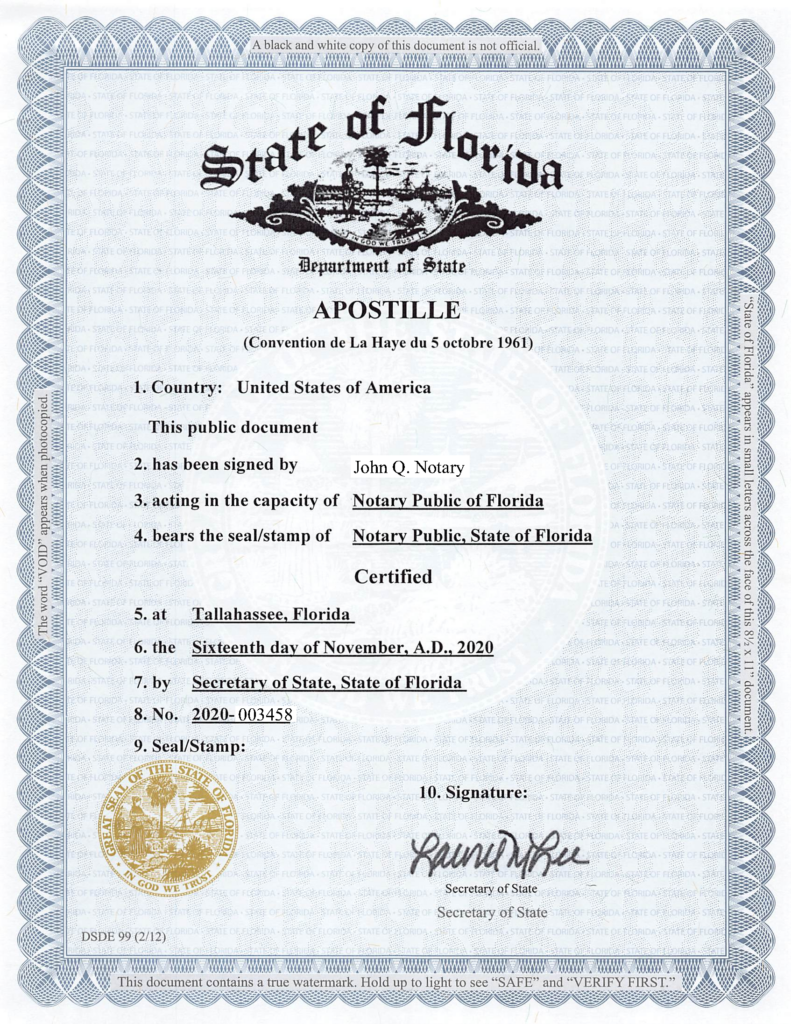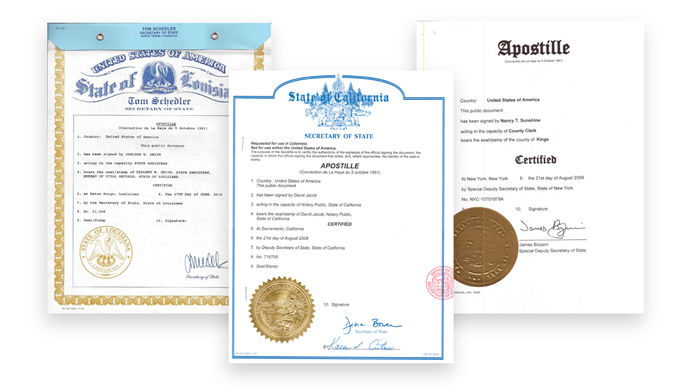Effective Houston Apostille Provider - Have Your Documents Apostilled
Diving Into the Reasons Behind the Necessary Need of Apostille Accreditation for Legal Papers
In the realm of legal documentation, the obligatory requirement of apostille certification has become an important aspect that significantly impacts the validity and acknowledgment of lawful papers on an international scale. Recognizing the reasoning behind this requirement includes delving right into the detailed web of legal complexities, historic precedents, and global agreements that emphasize the value of apostille accreditation in today's interconnected world. By discovering the underlying factors behind this extensive requirement, a more clear photo emerges of why this apparently administrative process holds such tremendous relevance for individuals, federal governments, and organizations alike.
Historic Evolution of Apostille Qualification
Just how did the principle of apostille certification progress over time to come to be a vital component of global document validation? The requirement for a streamlined approach of validating files for use throughout boundaries came to be apparent as international trade and travel boosted.
At first taken on by a few European countries, the Apostille Convention gradually gained global acceptance because of its effectiveness and efficiency in confirming the authenticity of main documents. For many years, the convention's reach increased as even more nations signed up with, identifying the apostille as an universally approved kind of record verification. Today, apostille qualification has actually come to be a standard requirement for confirming lawful documents in global purchases, making sure smooth interaction and legal proceedings between countries.
Simplifying International Record Legalization
The streamlining of global document legalisation treatments has substantially boosted effectiveness in cross-border purchases. Simplifying the procedure of legislating files for global usage has come to be important in facilitating swift and seamless purchases between countries. One of the vital systems that have actually contributed to this simplification is the fostering of the Apostille Convention, which gives a standardized technique for confirming the authenticity of papers across taking part nations.
By sticking to the Apostille demands, nations accept identify each other's public files as legitimate without the need for more legalization. This removes the often troublesome and extensive procedure of numerous verifications by various authorities, conserving time and sources for people and organizations taken part in global tasks.

Making Sure Paper Authenticity and Validity
To make sure the authenticity and credibility of lawful files in global transactions, rigid verification processes are crucial. By needing apostille qualification for legal documents, authorities aim to validate the beginning of files and validate the signatures of people involved.
In addition, validating the credibility of legal files through apostille qualification improves trust and confidence amongst events engaging in international transactions. Inevitably, by maintaining stringent verification criteria, apostille qualification contributes to a more clear and safe and secure global lawful framework.

Promoting Cross-Border Legal Acknowledgment
In the world of worldwide transactions, the apostille certification not just makes sure the authenticity and validity of lawful papers however also plays a pivotal duty in assisting in cross-border legal acknowledgment (Houston Apostille). When lawful papers bear an apostille certification, they are easily accepted by international authorities without the requirement for further confirmation. This streamlined process quickens the recognition of documents in various countries, advertising effectiveness and minimizing bureaucratic hurdles in lawful matters that go beyond national borders
Assisting in cross-border legal acknowledgment with apostille certification fosters trust fund websites and self-confidence in the authenticity more helpful hints of records exchanged in between countries. This acknowledgment is specifically vital in scenarios such as global company purchases, adoption processes, or lawful procedures entailing parties from various territories. By adhering to the criteria stated by the Apostille Convention, nations accept honor the apostille seals affixed to papers from other member countries, hence simplifying the procedure of legal acknowledgment throughout borders. Eventually, the apostille qualification serves as an essential device in promoting seamless worldwide lawful cooperation and making sure the smooth procedure of cross-border transactions.
Conformity With International Treaty Standards
Compliance with global treaty standards is essential for guaranteeing the consistent application of lawful policies throughout taking part nations. The Apostille Convention, established in 1961, describes the demands for the acceptance of public files among member countries. By adhering to the criteria stated in this treaty, countries dedicate to acknowledging the credibility of each other's official documents without the need for more verification - Houston Apostille. This common approval improves the process of cross-border document recognition, advertising performance and lowering governmental obstacles.
The Apostille qualification, as mandated by the treaty, functions as an assurance of authenticity for records such as birth certifications, marital relationship licenses, court judgments, and notarized deeds. This standardized strategy aids stop fraudulence and makes sure that legal papers stemming from one participant country are readily approved in an additional. In addition, by following international treaty criteria, nations show their dedication to maintaining the principles of transparency, trust, and participation in legal matters on a worldwide scale.
Final Thought

In the realm of lawful see this page documentation, the required requirement of apostille accreditation has actually come to be a vital element that significantly impacts the credibility and acknowledgment of legal papers on a worldwide range. Today, apostille certification has ended up being a standard demand for confirming lawful documents in global transactions, guaranteeing smooth interaction and legal procedures between countries.
Moreover, verifying the authenticity of lawful documents via apostille qualification boosts trust and self-confidence amongst events involving in worldwide deals.In the realm of worldwide transactions, the apostille certification not just ensures the credibility and legitimacy of lawful papers however also plays a pivotal duty in promoting cross-border lawful acknowledgment. By adhering to the standards set forth by the Apostille Convention, countries concur to recognize the apostille seals affixed to documents from other participant nations, therefore simplifying the process of lawful recognition across boundaries.